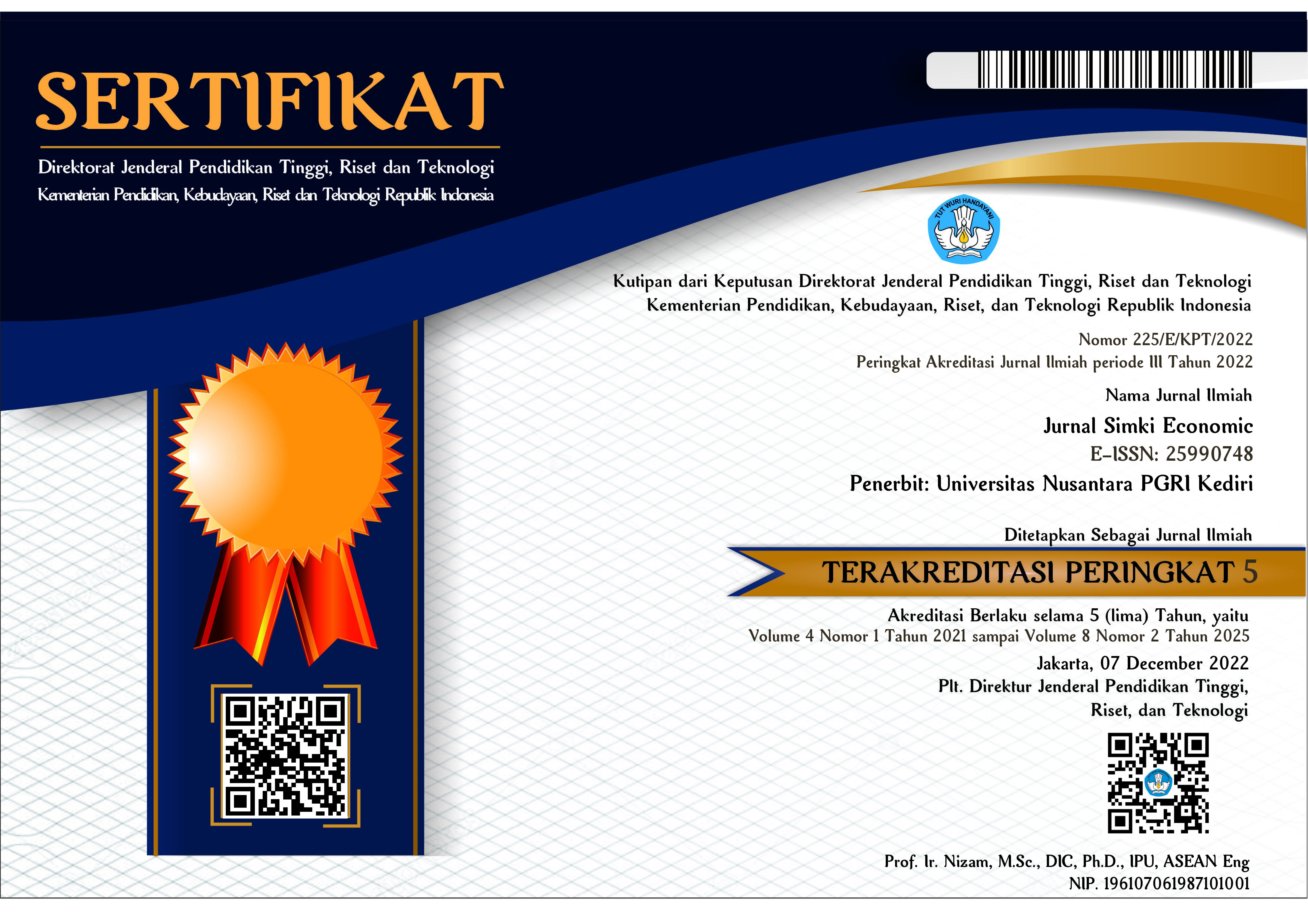Manajemen Pembelajaran Bahasa Inggris Melalui Kegiatan Ekstrakurikuler untuk Mengembangkan Retorika Siswa Di SLTA
Studi Deskriptif Di SMA IT dan SMK Bani Masum Cisalak Kabupaten Subang
 Abstract views: 432
,
Abstract views: 432
,
 PDF (Bahasa Indonesia) downloads: 603
PDF (Bahasa Indonesia) downloads: 603
Abstract
This study aims to obtain data, explore and analyze the management of the English language extracurricular learning process to develop student rhetoric which includes planning, organizing, implementing, evaluating, problems and efforts to improve them. This research was conducted in SMA and SMK Bani Masum Subang district with a qualitative approach and descriptive study method. The research technique used is observation, interview and documentation study. The results of this study indicate that the management of the learning process through English extracurricular activities to improve students' rhetoric, namely: 1) Planning has been carried out but in planning this planning is carried out personally and has not referred to applicable guidelines. 2) Organizing has been carried out and regulated by the teacher even though the organization is still not in accordance with the guidelines but has led to the applicable guidelines. In the process of learning English, giving a larger portion in the speaking aspect is a correct guideline, but in this study the results showed that the portion for the speaking aspect was still small. 3) Implementation has been in accordance with the plans that have been made, but there are still plans that have not been implemented properly such as the unrealized use of methods, media and the presence of teachers in class. 4) Evaluation has been carried out but there is little feedback in the next learning process. 5) problems that occur come from internal and external schools. 6) Improvement efforts have been carried out properly, one of which is by involving teachers in the regional English community, schools provide upgrades to teachers such as English language training and are given the authority to explore English learning management in extracurricular activities. The impact of the implementation of English extracurricular learning management to develop students' rhetoric is the creation of students who have active language skills properly and correctly.
Downloads
References
Alsagoff, L., McKay, S. L., Hu, G., & Renandya, W. A. (2012). Principles and practices for teaching english as an international language. In Principles and Practices for Teaching English as an International Language. https://doi.org/10.4324/9780203819159
Arikunto, S. (2002). Metodologi Penelitian Suatu Pendekatan Proposal. 2017.
Brown, H. D. (2003). Language Assesment Principles and Classroom Practice. In Pearson Longman.
Carlson, R. A. (2012). Restructuring in Learning. In Encyclopedia of the Sciences of Learning. https://doi.org/10.1007/978-1-4419-1428-6_897
Daar, G. F. (2020). Classroom Interaction In English Speaking Class (A Study At Sma Santu Fransiskus Ruteng, Flores). Journal of English Language Teaching and Linguistics, 5(3). https://doi.org/10.21462/jeltl.v5i3.437
Djamarah, S. B., & Aswan, Z. (2006). Strategi Belajar Mengajar (Edisi Revisi). In Jakarta: Rineka Cipta.
Kuntowijoyo. (2004). Sejarah / Sastra. Humaniora, 16(1).
Male, H., & Murniarti, E. (2018). IS TEACHER-MADE TEST STILL NEEDED FOR UNIVERSITY STUDENTS? TASKS AND CONSIDERATIONS. Jurnal Dinamika Pendidikan, 11(1). https://doi.org/10.33541/jdp.v11i1.798
Prayogo, E. R. (2022). Model Pembelajaran Drill And Practice untuk Meningkatkan Kualitas Pembelajaran Bahasa Inggris Materi Expression Of Congratulations pada Siswa Kelas IX B Di SMP Negeri 2 Bangsalsari Jember. Jurnal Simki Pedagogia, 5(1), 45-55. https://doi.org/10.29407/jsp.v5i1.112
Sanjaya, W. (2009). Kurikulum dan Pembelajaran: Teori dan Praktik Pengembangan, KTSP Jakarta. In Kencana Prenada Media Group.
Sugiono. (2016). Metode Pendekatan Kuantitatif, kualitatif dan R&D. In Bandung: Alfabeta.
Copyright (c) 2022 Faisal Abda’u, Iim Wasliman, Cahya Syaodih

This work is licensed under a Creative Commons Attribution 4.0 International License.














